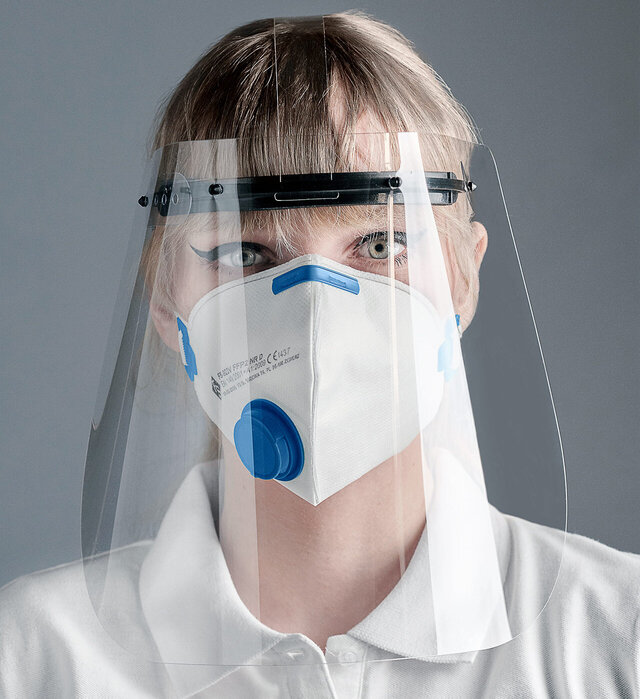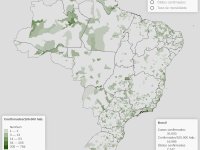Brazil's National School of Public Administration (Enap) has launched a series of public challenges to combat a variety of issues regarding the epidemic:
Efficiency of the health system to face the epidemic
Decreasing the economic impacts in the context of Covid-19
Mitigation of the socio-economic consequences of Covid-19
Monitoring and management of coping with the epidemic
Companies, impact businesses, private non-profit entities, public and private Scientific and Technological Research…
COVID-19 Innovative Response Tracker
Search and filter through innovative COVID-19 solutions from around the world

Responses:
0
This website, as well as any data and map included herein, are without prejudice to the status of or sovereignty over any territory, to the delimitation of international frontiers and boundaries and to the name of any territory, city or area.
Brazil's Federal Senate has launched a 'Remote Deliberation System' which will allow members to identify, debate and vote remotely. The system is also designed to be replicated by other parliaments.
When a voting session starts, each senator receives a link through their mobile phone (on whatsapp). The link leads to a login page. After logging in, senators can see the options for voting on the current live bills. When a senator chooses one of these, the screen will then automatically prompt the…
Covid-19 Response
Brazil uses AI and Voice Response robots for medical consultations and tracking cases
The Braziian government is using AI to assist in the mapping and tracking of COVID-19 infections. Interactive voice response (IVR) robots will trigger automatic calls and carry out virtual consultation with Brazilians.
Using AI, the robot will ask people about contacts with those infected, commuting on public transport and day-to-day care to understand hwo the outbreak is developing.
The system will then cross the information and, using big data and analytical tools, track who is at risk, who…
Covid-19 Response
Brasil.io collaborative open platform gathering daily, municipality level official data on Covid-19

A collaborative effort of over 40 volunteers have been scraping official reports from the state Health Secretariats in order to obtain daily, city-level data about Covid-19 in Brazil. The data is then made available as bulk CSV downloads, as a JSON API as well as a web form on the Brasil.io open data platform. This is the only open data source available for daily Covid-19 data in Brazil that has municipality level granularity.
We have developed a system which encompasses a WEB-based control panel and an App (for users/population) which can track the geographical distribution of outbreaks, epidemics and pandemics of contagious diseases and vaccination campaigns.
Our system (called SaudeCEM) is able to launch warnings and informative messages, at different competence levels and in multiple areas, transforming each smartphone into a portable siren and also acting as an informative platform for their user safety. SaudeCEM…
Covid-19 Response
IdearuMCTIC is a platform to assess the maturity of technological solutions to the pandemic.
Brazil's Ministry of Science, Technology, Innovation and Communications has launched a platform, IdearuMCTIC, aimed at connecting ideas and evaluating the maturity of technological solutions related to the challenges imposed by the pandemic.
Covid-19 Response
Brazil’s ‘Virus-MCTIC Network’ will nationally coordinate research to identifying…
The Ministry of Science, Technology, Innovation and Communications of Brazil (MCTIC) established an advisory committee and strategic plan to provide coordinated and quick responses to emerging viruses. This "Virus-MCTIC Network" coordinates the efforts of research laboratories with a view to identifying complementarities of infrastructure and activities in the ongoing research on Covid-19, influenza and others. The objectives of the network are the integration of scientific research and…
- Control of epidemics
- Patient Control
- Control of Vaccination Campaigns
- Expert needs control by location
- More reliable and secure data under the new personal data protection law
- More objective targeting of public health policy
- Faster reaction to public health emergencies
- Doctors with access to all health history and with more accurate patient information, even in emergency care
- Patients with their health history updated and accessible when they need medical care
- Public…
In order to discuss and vote on important issues during the new coronavirus pandemic, the Federal Senate was the first parliament in the world to hold its first deliberative session for remote voting on 20 March.
On March 24, the House implemented the Remote Deliberation System (SDR). Through the platform, parliamentarians can debate and vote via video and audio. The system, which can be used both on a cell phone and on a personal computer, can serve the voting needs of the National Congress.…
One of the measures adopted by the Senate to inform and assist in the fight against the new coronavirus was the provision of an online chat so that employees can ask questions, with doctors of the House, about covid-19.
The demands, answered exclusively by messages, are answered from 7:00 to 19:00, from Monday to Friday. In this way, specialists answer questions such as forms of contagion, symptoms of the disease and advise on the necessary referrals. The action will continue until the situation…

